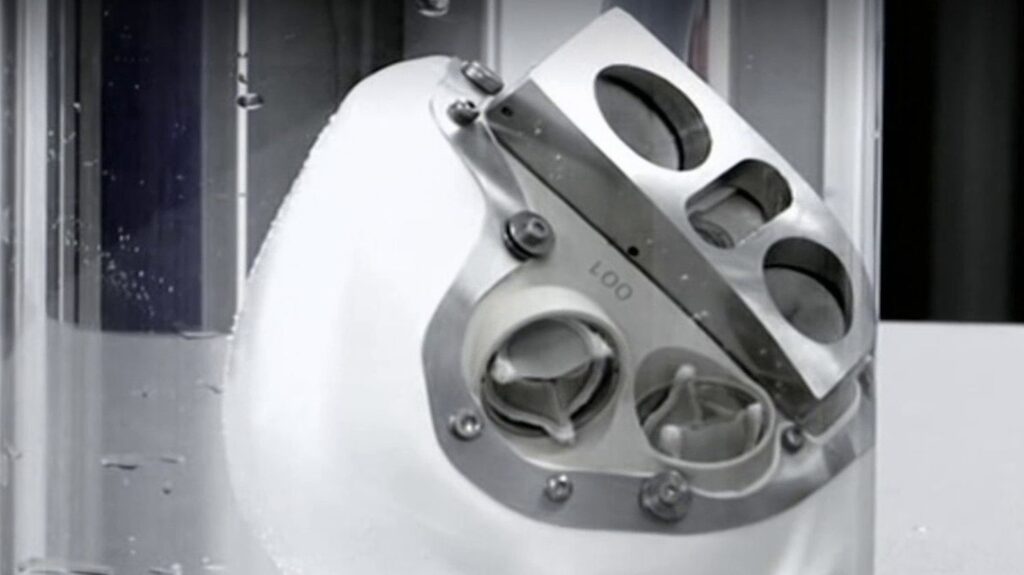Published
Updated
Reading time: 2min – video: 3min
3 minutes
Carmat, the pioneering artificial heart company, is on the verge of bankruptcy and could be placed in liquidation. The court must rule by the end of November. Today, 32 patients live with a Carmat artificial heart and are afraid for their health and their future. We met one of them, Patrick Boitelet.
This text corresponds to part of the transcription of the report above. Click on the video to watch it in full.
Patrick Boitelet is a survivor. At 59, he leads a normal life to the rhythm of the sound of his artificial heart, which has been autonomous for almost 11 months. “Without this prosthesis, without Carmat, I would no longer be here”he assures. A prosthesis that allows him to live his life: “I tinker, I prune, I go walking, I go fishing”he lists. In return, he must constantly carry and manage a bag weighing almost 3 kg, the batteries which keep him alive.“I call it my lifeline. This controller powers my prosthesis. A set of batteries is between 4 and 6 hours depending on the activity and the effort required”explains Patrick.
But for several weeks, Patrick has been worried. The Carmat company, which designed its prosthesis, could soon be placed in liquidation. The company promises to ensure its technical and medical monitoring. On the other hand, in the event of bankruptcy, it will no longer be able to benefit from technological improvements. “Today, I am dying. When? I don’t know. But since we don’t know the lifespan of the prosthesis, I know. I know that one day or another, the machine will stop”he confides.
Initially, Carmat was one of the greatest feats of French medical research. The first prosthesis was implanted in December 2013 on a 76-year-old patient. He only survived two and a half months, but there was hope. In 12 years, 108 patients have benefited from this artificial heart in 17 countries. But today, the company is running out of steam due to lack of sufficient investment.
Patrick Boitelet has been on the waiting list for a heart transplant for almost three years. Beyond his personal case, he denounces an immense waste for other patients.“People who have not had this machine implanted, if they don’t have the graft within 14 days, it’s over. It’s over for them”he laments.“That’s my anger. Why are we abandoning this technology?”asks his wife, Marilyne Boitelet.
The decision on the future of the Carmat company will be made on November 25. Potential buyers have a little over a month to come forward.

/2025/10/14/coeur-artificiel-68eeb4fab0407738453261.jpg)

